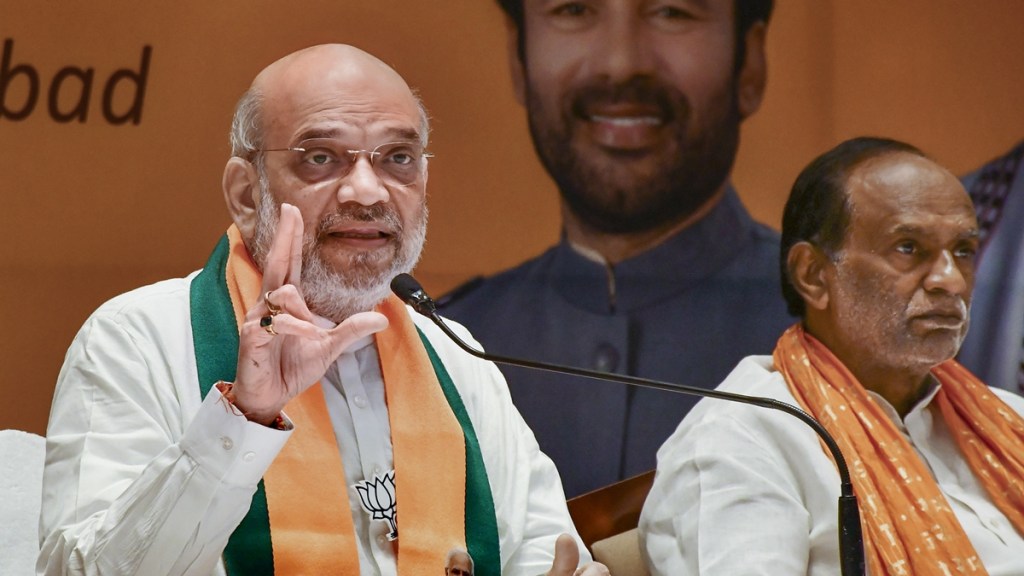Union Home Minister Amit Shah conducted a comprehensive review meeting on Sunday to evaluate the country’s readiness in managing floods, which annually wreak havoc in several states during the monsoon season.
The meeting, held at the Ministry of Home Affairs in North Block, was attended by key officials and ministers, including Union Minister of Jai Shakti, C R Patil, and Minister of State for Home Affairs, Nityanand Rai.
“The home minister chaired a high-level meeting here and reviewed overall preparedness for flood management in the country,” a home ministry official said.
The discussion focused on the current flood situations in various states, especially Assam, where recent flooding has affected lakhs of people across multiple districts. The state has been grappling with rising waters, which submerged villages and vast swathes of agricultural land. The floods have resulted in significant damage to infrastructure and loss of lives.
In addition to Assam, states like Uttarakhand, Himachal Pradesh, and Sikkim also face challenges such as landslides triggered by heavy rains during the monsoon. These incidents highlight the diverse and complex nature of the natural calamities that India contends with each year.
The meeting also addressed the aftermath of Cyclone Remal, which recently struck Tripura and exacerbated flooding in Assam and neighboring regions. The cyclone’s impact underscores the urgent need for robust disaster management strategies, particularly as climate change intensifies extreme weather events across the subcontinent.
Union Home Minister Amit Shah stressed the importance of coordinated efforts among various ministries and agencies to enhance preparedness and response mechanisms. The government aims to minimize the loss of life and property caused by floods through proactive measures and timely interventions.
The next steps discussed include bolstering infrastructure resilience, improving early warning systems, and enhancing the capacity of disaster response teams such as the National Disaster Response Force (NDRF). These initiatives are part of a broader strategy to mitigate the impact of natural disasters and safeguard vulnerable communities across the country.
With inputs from PTI.

